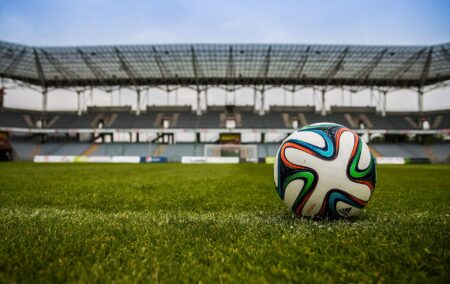Test cricket returns this week with England and the West Indies clashing from tomorrow, in Southampton. Because of the Covid-19 pandemic there will be no spectators and the players have been banned from using saliva, as they customarily do, to shine the ball and help it swing.
However, something that will have interest for those who may not be cricket anoraks is the fact that the players from both the English and West Indian sides will have a badge on their collar with the words: ‘Black Lives Matter’.
By contrast, in 2014, Moeen Ali, the English allrounder was reprimanded by the sport’s global administrative body, the International Cricket Council (ICC), for a comparable gesture of solidarity. In a Test match against India (also in Southampton) Ali wore two wristbands, one saying ‘Free Palestine’ and the other ‘Save Gaza’. Although he had received clearance from the English Cricket Board (ECB) to wear the wristbands, the ICC match referee, David Boon, ruled he had to remove them. The ICC said in a statement: ‘The ICC equipment and clothing regulations do not permit the display of messages that relate to political, religious or racial activities or causes during an international match.’
It is not clear why Ali’s wristbands did not pass muster as a permissible political statement while ‘Black Lives Matter’ does today.
Then again, the ICC is not an organization known for its consistency or for having moral fibre. For example, at the beginning of last year the Indian cricket team were given permission to wear camouflage caps in a one-day match against Australia in tribute to the 40 Indian soldiers who died at the hands of a Pakistan-based terrorist movement, Jaish-e-Mohammed. Despite the Pakistani government denying involvement in the attack, it did result in heightened tensions between the two countries, with Indian jets attacking an alleged base of Jaish-e-Mohammed on Pakistani soil.
India is now the centre of the cricketing universe, and it is extremely unlikely that any other country would have been granted permission to wear military-themed caps like the Indian side was.
It should be noted that the ECB has distanced itself from the BLM political movement. Tom Harrison, the head of the ECB, said: ‘The England and Wales Cricket Board fully support the message that Black Lives Matter… Our support of that message is not an endorsement, tacit or otherwise, of any political organisation, nor the backing of any group that calls for violence or condones illegal activity. We are aware of certain aspects of the movement that promote their own political views, and their actions are not supported in any way by the ECB and our players.’
The English Premier League also recently voiced its support for Black Lives Matter, following the resumption of professional football in that country. The phrase ‘Black Lives Matter’ replaced the players’ names on the backs of their shirts when matches resumed and players also ‘took the knee’ before some games. However, this showed up the hypocrisy of at least one club in the league.
In December, Mesut Ozil, who plays for Arsenal, had posted a message on Twitter condemning the treatment of the Muslim Uighur people in China. Arsenal soon distanced itself from Ozil (who is Muslim and was born in Germany to a family of Turkish background) and said ‘Arsenal has always adhered to the principle of not involving itself in politics’. Ozil was hugely popular in China, having over 4 million followers on a Chinese social media site called Weibo.
Interestingly Arsenal had not felt the need to distance itself from another player, Hector Bellerin, who had on the morning of the British general election in December last year sent a tweet which included the hashtag #FuckBoris.
Arsenal’s haste to distance itself from Ozil likely has something to do with the power of the yuan – China signed a £540 million broadcast detail with the Premier League and Chinese investors have lavished large amounts on Premier League sides, including Manchester City, Southampton, and Wolverhampton Wanderers.
Like the ECB, the Premier League also distanced itself from the BLM political movement, saying its support for Black Lives Matter did not extend to support for any political organisation.
It’s easy to support a political or other movement which has broad public or establishment support, but more difficult when it does not. Two men who epitomise this, and could be thought of as the spiritual fathers of BLM in some way, are Tommie Smith and John Carlos. They were the two American sprinters who after having come first and third respectively in the 200m sprint at the 1968 Olympic Games, instead of singing the Star-Spangled Banner during the medal ceremony, each raised a fist (clad in a black glove) to protest racial injustice in the United States. Both men subsequently were ostracised by the athletics establishment in America, but both have since been rehabilitated and their bravery recognised. And it is perhaps not a stretch to say Ozil and Ali have more in common with Smith and Carlos than most other sportsmen.
As Martin Luther King Jnr said: ‘Injustice anywhere is a threat to justice everywhere.’ And just as sportspeople with influence should raise awareness of racial issues in the West, so should others be allowed to raise awareness about the plight of all those who face oppression, whether it be Moeen Ali speaking about Palestinians or Mesut Ozil about Chinese Muslims.
Any sportsmen should be free to wear a badge saying ‘Black Lives Matter’ but those who are trying to raise awareness of oppression of other peoples must not be silenced. And while sporting bodies should raise awareness around injustice, if they only support popular causes it casts doubt on their sincerity.
Image by Michal Jarmoluk from Pixabay
If you like what you have just read, subscribe to the Daily Friend

